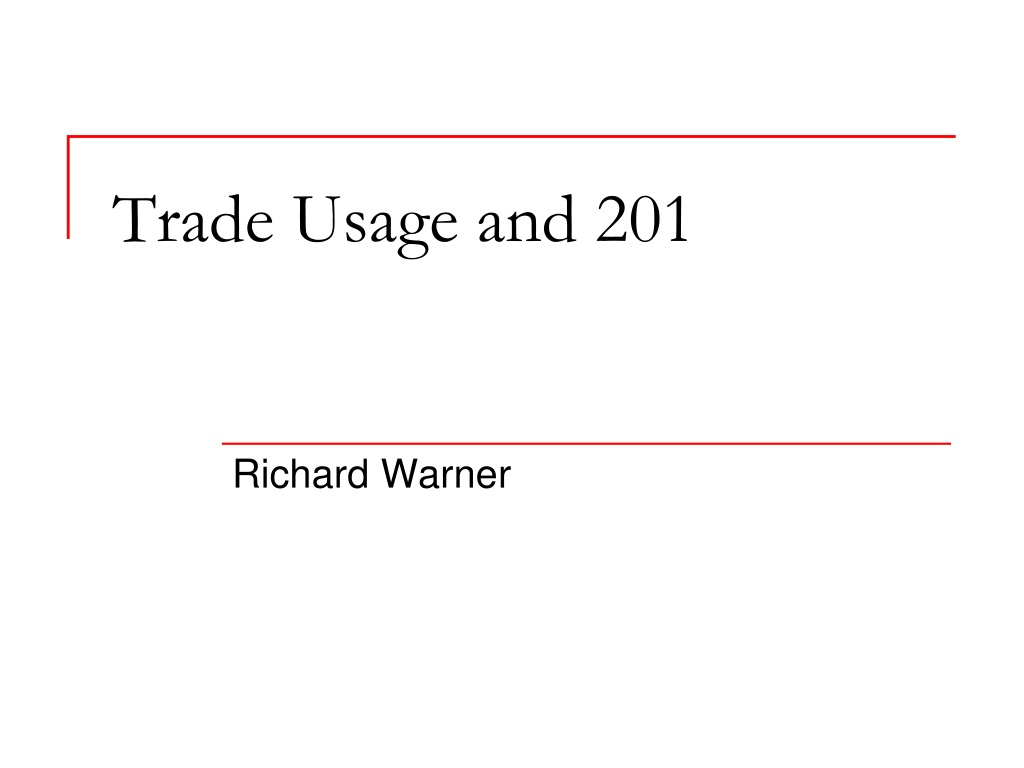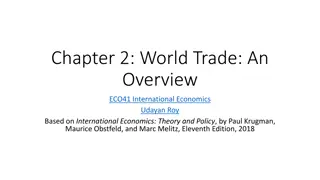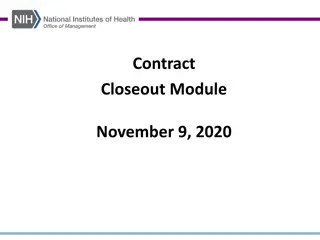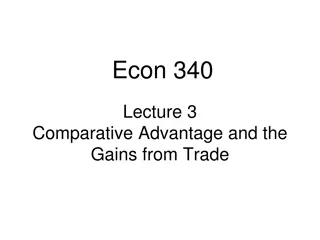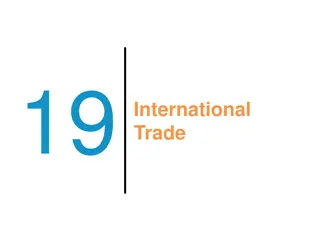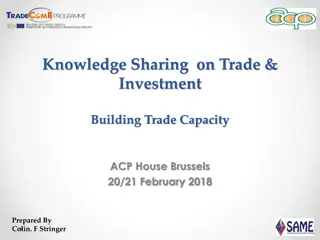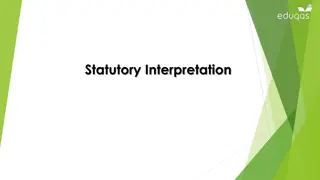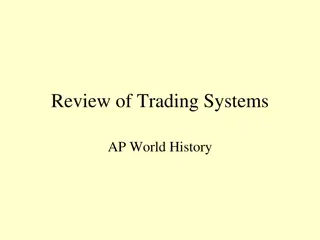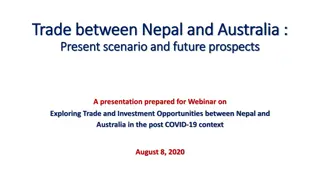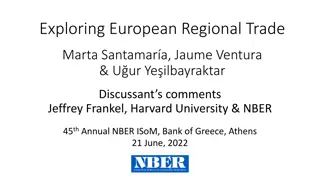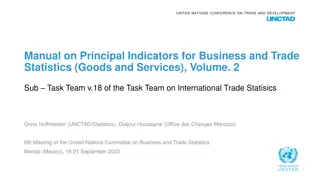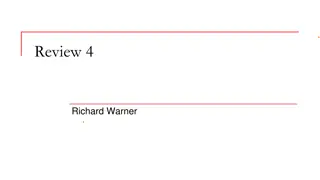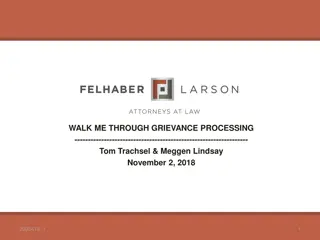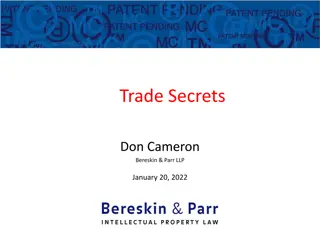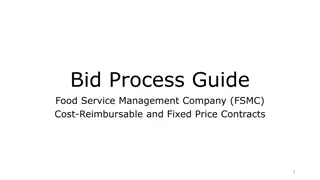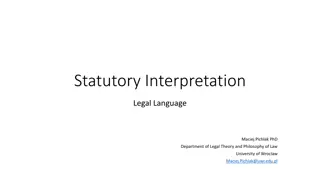Understanding Trade Usage and Contract Interpretation in Business Context
Explore the nuances of trade usage and contract interpretation in various scenarios, such as book sales and printing agreements. Learn about the importance of industry customs, contractual terms, and the objective intent test in resolving disputes. Real-life examples highlight the significance of clarity and common understanding in business dealings.
Download Presentation

Please find below an Image/Link to download the presentation.
The content on the website is provided AS IS for your information and personal use only. It may not be sold, licensed, or shared on other websites without obtaining consent from the author. Download presentation by click this link. If you encounter any issues during the download, it is possible that the publisher has removed the file from their server.
E N D
Presentation Transcript
Trade Usage and 201 Richard Warner
A Preliminary Question Suppose you ask a bookstore for a copy of War and Peace. They produced volume 1 of a two-volume work. Would you say Thanks, or I want the whole thing ?
Trade Usage Trade usage is an established pattern of use of an expression in an industry where any person in that industry can be expected to understand the term in that way. If there is trade usage, there is a strong presumption to interpret the contractual term in accord with that usage
Victor/Victoria Victor agrees to sell 10 barrels of beer to Victoria at $100 a barrel. As both Victor and Victoria know, the standard practice (and Victor s practice) is to use 31 gallon wooden barrels, and they know as everyone in the trade knows that the barrels hold less than 31 gallons as the get older. No one complains. All accept deliveries of a mix of newer and older barrels. There is a statute that defines a barrel as 31 gallons. The trade usage is that barrel means barrel in current use. Victor delivers 10 barrels. The barrels are a mix of newer and older barrels, some holding 31 gallons, some less. Did Victor breach his promise? a) Yes, because of the statutory definition. b) No
Berwick & Smith v. Salem Press Berwick & Smith hired Salem Press to print the two volume work Master Plots. The price was quoted as 5,000 copies at .561 10,000 copies at .538. The trade usage in the publish industry is that copy means one volume.
It Makes A Difference 2500 two-volume sets costs $2805, not $1402.50. Berwick & Smith (new to the publishing trade) said they assumed that copy in the contract meant a two-volume set. Just as you did in the bookstore.
Restatement 201 (1) Where the parties have attached the same meaning to a promise or agreement or a term thereof, it is interpreted in accordance with that meaning. When do the parties attach the same meaning to a promise or agreement or a term thereof ? When a reasonable person in the circumstances would interpret the words has a having one, determinate meaning. Restatement 201 just is the Objective Intent Test. It is not a separate rule!!
201 (2) (2) Where the parties have attached different meanings to a promise or agreement or a term thereof, it is interpreted in accordance with the meaning attached by one of them if at the time the agreement was made (a) that party did not know of any different meaning attached by the other, and the other knew the meaning attached by the first party . . . When do the parties attach different meanings ?
Attaching Different Meetings Could be early Could be late Peerless Early Peerless Late Peerless The reasonable person.
201(3) (3) Except as stated in this Section, neither party is bound by the meaning attached by the other, even though the result may be a failure of mutual assent. This does not always give the results we want.
Sowle and Heyman Steve Sowle is the manager and lead singer of the band, Sounds of Sowle, which specializes in the big band sound of the 1940s. The band has just produced its first CD, Sowle First. Heyman promises Sowle, I will pay you $5000 for one night to perform at Heyman s Hang Out to sing your Sowle music on December 7. Sowle promises to sing his Sowle music. Heyman happens to think Sowle music means rhythm and blues, not the big band sound Sowle thought Heyman meant. Neither Sowle nor Heyman was aware of the misunderstanding. Under 201(3) is there a failure of mutual assent? (a) Yes (b) No
Relevant trade usage? No Yes Objective intent test adequately resolves any ambiguity? No Presumption is to interpret in accord with trade usage Yes Use objective intent test Misunderstanding? Yes No One party knows or should know of the misunderstanding? Main purpose of the contract can be determined? No Yes Yes No No contract under 201 Interpret against party with knowledge Use hypothetical intent test Use other strategies
